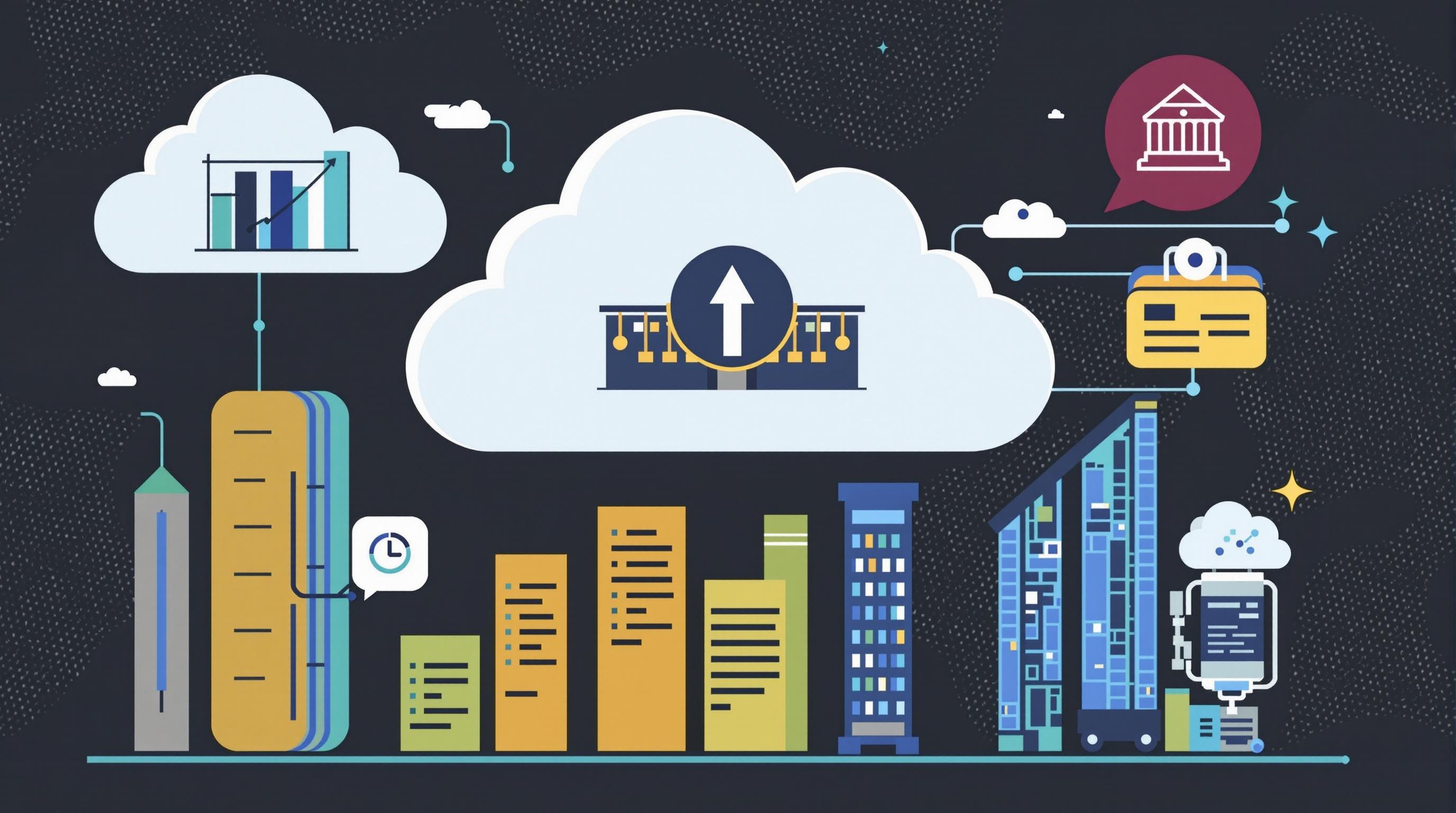Related Articles
- How Emotional Spending Biases in Leadership Can Influence Company Financial Transparency and Accountability
- Unveiling the Role of Employee Psychology in Shaping Unexpected Business Budget Outcomes
- Top 6 Disruptive Invoice Platforms Launched Since 2019 Tackling Automation Bottlenecks in Unconventional Ways
- Top 6 Smart Accounting Softwares Since 2019 That Revolutionize Tracking Business Tax Write-Offs
- The Rise of Biometric Authentication in Digital Finance: A New Frontier for Secure Business Transactions
- How Small Nonprofits Leverage Alternative Finance Tools to Navigate Accounting Challenges Off the Radar
9 Overlooked Compliance Challenges in Cloud Accounting Every Growing Business Must Address
9 Overlooked Compliance Challenges in Cloud Accounting Every Growing Business Must Address
9 Overlooked Compliance Challenges in Cloud Accounting Every Growing Business Must Address
1. Data Privacy Regulations
As businesses migrate their accounting systems to the cloud, they must adhere to stringent data privacy regulations such as GDPR in Europe and CCPA in California. These laws mandate how personally identifiable information (PII) is collected, stored, and processed.
Many growing companies overlook the necessity to configure cloud platforms to meet these regulatory requirements, potentially facing hefty fines and reputational damage if data is mishandled. Ensuring compliance requires regular audits and staff training on data handling procedures.
Cloud accounting providers usually offer compliance certifications, but businesses must ensure that contractual agreements explicitly cover data privacy obligations. Failure to do so can expose companies to legal vulnerabilities as they scale.
2. Cross-Border Data Transfer Issues
Cloud accounting solutions often involve storing data across multiple geographic locations to enhance uptime and disaster recovery. However, transferring financial data across borders can trigger complex compliance challenges.
Laws in jurisdictions such as the EU restrict the export of sensitive data to countries that do not guarantee equivalent privacy protections. This can complicate the implementation of global cloud accounting strategies for expanding businesses.
To mitigate risks, companies must understand the data transfer policies of their cloud providers and may need to employ Standard Contractual Clauses (SCCs) or other mechanisms to safeguard compliance with international data transfer laws.
3. Auditing and Access Control
Effective auditing and access control are critical for compliance in cloud accounting environments. Growing businesses often underestimate the challenge of maintaining rigorous audit trails in a cloud context.
Without clearly defined roles and permissions, unauthorized access or modifications to financial data can occur, undermining data integrity and regulatory compliance. Cloud platforms offer tools for role-based access control (RBAC), but these must be customized to the company’s operational structure.
Regular audits, both internal and external, are necessary to verify access controls and detect any anomalies promptly. Borrowing best practices from frameworks like SOX (Sarbanes-Oxley Act) can help ensure robust compliance.
4. Data Retention and Backup Policies
Compliance standards often specify how long financial data must be retained and the methods for ensuring data availability. Companies transitioning to cloud accounting may overlook how data retention policies interact with cloud backup schedules.
Inadequate retention can lead to violations, especially in heavily regulated sectors like finance or healthcare. Conversely, retaining data longer than necessary can increase exposure to data breaches.
Implementing clear data lifecycle policies aligned with both legal requirements and cloud provider capabilities helps manage these risks effectively. This includes defining when data should be archived or deleted securely.
5. Compliance with Industry-Specific Standards
Different industries have distinct compliance requirements that impact cloud accounting processes. For example, financial services must comply with regulations like PCI DSS, while healthcare entities adhere to HIPAA standards.
Many businesses adopt generic cloud accounting solutions without ensuring alignment with their industry's regulatory framework. This gap can lead to significant non-compliance risks as companies grow.
Engaging cloud providers that specialize in industry-specific compliance and obtaining formal attestations or certifications can help companies meet their obligations and reassure stakeholders.
6. Vendor Management and Third-Party Risks
Relying on cloud accounting providers introduces third-party risk exposures that require diligent vendor management. Companies must evaluate providers’ security controls, incident response capabilities, and compliance posture regularly.
Overlooking this aspect can result in gaps that compromise financial data security and compliance adherence. Contracts should clearly define responsibilities around compliance, data protection, and breach notification protocols.
Periodic vendor risk assessments and incorporating compliance requirements into Service Level Agreements (SLAs) are best practices that growing businesses should implement promptly.
7. Encryption and Data Security Measures
Encryption is a fundamental safeguard for protecting sensitive financial data in cloud accounting systems. However, some businesses fail to enforce strong encryption standards during data transmission and storage.
Industry best practices recommend using end-to-end encryption and key management strategies to ensure data confidentiality. Cloud providers typically offer encryption tools, but companies must configure them correctly and maintain control over keys when possible.
Additionally, regular security assessments can identify vulnerabilities related to encryption implementation, minimizing the risk of unauthorized access and compliance violations.
8. Real-Time Compliance Monitoring
Cloud accounting enables dynamic financial processes, making static compliance checks insufficient. Real-time monitoring tools and automated alerts help identify compliance deviations as they occur.
Growing businesses often lack the infrastructure or expertise to implement such systems, leading to delayed responses to regulatory breaches or audit findings. Incorporating compliance automation tools can streamline risk management.
These solutions can integrate with accounting platforms to track transactions, flag anomalies, and generate reports aligned with regulatory requirements, enhancing overall compliance posture.
9. Training and Change Management
Transitioning to cloud accounting introduces new workflows and compliance responsibilities for employees. Organizations frequently underestimate the importance of comprehensive training and change management in maintaining compliance.
Staff must understand regulatory requirements, cybersecurity hygiene, and proper use of cloud platforms to avoid unintentional violations. This is particularly crucial as businesses scale and bring on new team members.
Regular training sessions, clear documentation, and fostering a culture of compliance can mitigate risks associated with human error and ensure adherence to evolving regulations.
10. Preparing for Future Regulatory Changes
Regulatory environments for financial data and cloud technologies are continuously evolving. Companies must stay proactive in anticipating changes to avoid sudden compliance gaps.
This includes monitoring legislative developments, adjusting policies promptly, and maintaining flexible cloud configurations capable of adapting to new requirements.
Partnering with legal experts and leveraging compliance management platforms helps growing businesses navigate uncertainty while maintaining confident control over their cloud accounting compliance frameworks.
Sources:
- European Commission, “Data protection in the EU” - https://ec.europa.eu/info/law/law-topic/data-protection_en
- U.S. Small Business Administration, “Understand your compliance requirements” - https://www.sba.gov/business-guide/manage-your-business/stay-legally-compliant
- PCI Security Standards Council, “PCI DSS Quick Reference Guide” - https://www.pcisecuritystandards.org/documents/PCI_DSS-QRG-v3_2.pdf




